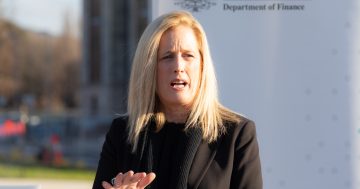Drew Housman says many Millennials spends more on coffee than on preparations for their retirement.
 As a personal finance writer, I sometimes find myself aghast at the ways my fellow Millennials are spending money.
As a personal finance writer, I sometimes find myself aghast at the ways my fellow Millennials are spending money.
One only has to look at one money diary from a 26-year-old to see what I’m talking about.
She’s unemployed, yet she pays for cable TV, Netflix, Spotify, a gym membership, and an expensive smartphone plan.
Her retirement savings? Zero.
At least she can take comfort knowing that her spending isn’t all that different from most people her age.
Only about a third of Millennials are saving anything at all for retirement.
A Fidelity survey found that Millennials who do save for retirement are socking away an average of 7.5 per cent of their salary — about $3,096.
One-third of Millennials saving about $3,096 a year, two thirds of them saving zero.
Our very back-of-the-envelope math shows the average Millennial saving a little more than $1,000 a year for retirement.
All this got me thinking about the many areas in which Millennial spending outpaces retirement savings.
I dug into the data to find spending categories where some relatively simple cutbacks could save the average Millennial quite a bit of money.
Coffee:
The average 25-to-34-year-old reported spending $2,008 per year at coffee shops, according one survey.
Some 41 per cent of Millennials admitted to spending more on coffee in the past year than they had invested in their retirement accounts.
I love my morning brew, but those stats are alarming.
Those who want to save money but can’t bear to cut back on their caffeine intake should look into brewing their own coffee at home.
Health and Wellness:
Millennials spend about $1,800 per year on health and wellness, with a large chunk of that going toward expensive monthly gym memberships.
To be clear, I’m a major proponent of getting enough physical activity every day and living a healthy lifestyle.
I just think there are many resources that can help you get a top-notch workout for no money at all.
Restaurants:
All that Instagramming of fancy meals doesn’t come cheap.
A recent survey showed that Millennials are dropping an average of $2,800 per year on restaurants.
Eating out a lot isn’t unique to Millennials, but they do order out more often than other generations.
This is the easiest area where we Millennials can see some serious savings.
For one thing, it’s simpler than ever to create tasty, low-cost, nutritious meals in your home.
If you focus on learning some basic kitchen skills and cooking for yourself, you can save so much money — and you’ll probably be healthier.
Cell Phone Plans:
Millennials were the first smartphone generation, and it shows in the way we spend on our cell phone plans.
The plans we buy to keep up with our mobile phone addictions are costing us $2,000 per year according to one survey.
That number might seem ridiculously high to regular readers, but the numbers don’t lie.
It appears not everyone is optimising their cell phone plan.
Luckily, there are many cheap cell phone plan options that will instantly provide relief for those stuck paying high monthly bills.
You might not be able to stream YouTube all day long anymore, but that’s a small price to pay for having extra cash to save for retirement.
Fuel:
Millennials are coughing up more than $3,000 per year on fuel for their cars, or about $250 a month.
While many of us rely on cars to get to and from work, that’s still an awful lot of money.
There are quite a few ways to spend less on fuel, whether it’s researching the cheapest gas stations in your area, switching to a more fuel efficient vehicle or using public transportation.
Even moving closer to your job.
Retirement can seem a long way off in your 20s — but the earlier you can start saving for it, the less you’ll actually have to sock away, thanks to the magic of compound growth.
Every dollar you invest now instead of spending will work on your behalf for years to come.
It’s not just about retirement: It’s that unplanned expense.
Anywhere you’re able to cut back on spending can help put you on firmer financial footing.
For Millennials, one or more of the above categories might be a good place to start.
*Drew Housman is a former professional basketball player who is passionate about writing content that empowers people to improve their careers, save more money, and achieve financial independence.
This article first appeared at www.thesimpledollar.com











